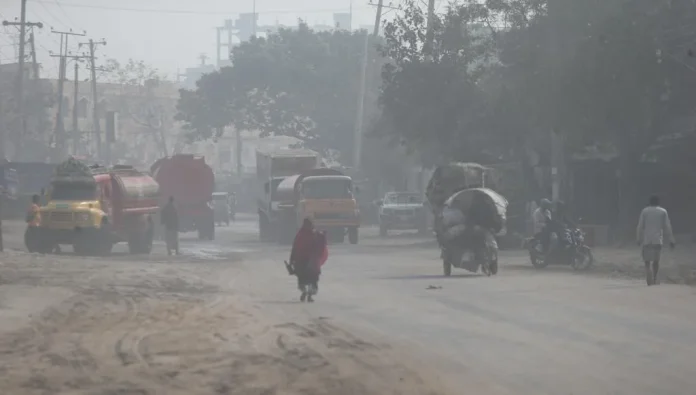DHAKA, Mar 1: Dhaka, the capital of Bangladesh, recorded the worst air quality globally on Saturday morning, with an Air Quality Index (AQI) reaching 304, classified as ‘hazardous.’ This level of pollution poses severe health risks to residents.
According to the Air Quality and Pollution City Ranking, Dhaka’s AQI is significantly worse than that of other major cities. Beijing (China), Tashkent (Uzbekistan), and Baghdad (Iraq) ranked second, third, and fourth on the list, with AQI scores of 238, 220, and 179, respectively.
The AQI, which is used to assess daily air quality, takes into account five major pollutants: particulate matter (PM10 and PM2.5), carbon monoxide, sulfur dioxide, nitrogen dioxide, and ozone. An AQI between 301 and 400 is categorized as ‘hazardous,’ indicating potential severe health impacts. The World Air Quality Report, published by the Swiss-based organization IQAir, provides these rankings.
Bangladesh has long struggled with severe air pollution, which contributes to an estimated 102,456 deaths annually, according to the Centre for Research on Energy and Clean Air. The World Health Organization (WHO) also highlights that air pollution is responsible for millions of deaths worldwide each year. The WHO reports that 9 out of 10 people breathe air with high levels of pollutants and continues to work with countries to monitor and improve air quality.

